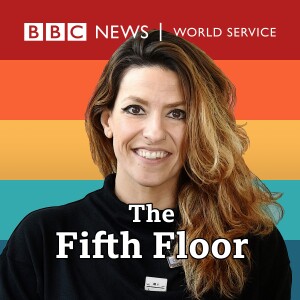
It’s 60 years since a peaceful march in Paris ended in the killing of at least 100 Algerian protesters by the police. An extensive cover-up meant that almost nothing was known about it for several decades, and the true facts are still emerging. BBC Arabic’s Ahmed Rouaba has been looking into the story.
The Stallion of Yennenga
As film-makers gather for the FESPACO African film festival in Ouagadougou, the capital of Burkina Faso, we ask what’s the story behind the main prize, called the Stallion of Yennenga? Who was Yennenga, and where does the stallion come in? Answers from BBC Afrique's Leone Ouedraogo, who is Burkinabè herself.
When a cobra became a murder weapon
Last week a man was convicted of using a snake as a murder weapon. The victim was his wife, who was bitten by the hooded cobra, and died. The BBC’s Soutik Biswas in Delhi was one of the journalists following the story.
Venezuelan migrants in Chile
Last month, demonstrators in a town in northern Chile marched to settler camps housing Venezuelan migrants and set their belongings on fire. It's part of the rising tension in Chile between locals and migrants, as BBC Mundo contributor Paula Molina reports.
'Got to go'
Why is a cheerful rap song about a party making people cry in Hong Kong? The lyrics of Got to go are about leaving a party, but is there another interpretation? Cho Wai Lam from BBC Chinese tells us more about what this song means to Hongkongers.
Image: Algerian flag with roses during a commemoration of the 1961 massacre in Paris
Credit: Boris Horvat/AFP via Getty Images
view more
More Episodes
My Hanoi Childhood in Five Pictures
 2018-11-02
2018-11-02
 2018-11-02
2018-11-02
Edible Gold
 2018-10-26
2018-10-26
 2018-10-26
2018-10-26
Makoko: Stories of Hope
 2018-10-19
2018-10-19
 2018-10-19
2018-10-19
Spies In The Spotlight
 2018-10-12
2018-10-12
 2018-10-12
2018-10-12
Bolsonaro: The Man Dividing Brazil
 2018-10-05
2018-10-05
 2018-10-05
2018-10-05
Don’t Tell Us What to Wear
 2018-09-28
2018-09-28
 2018-09-28
2018-09-28
Reclaiming Mogadishu’s Sports Stadium
 2018-09-21
2018-09-21
 2018-09-21
2018-09-21
Pakistan's Ahmadiyya Problem
 2018-09-14
2018-09-14
 2018-09-14
2018-09-14
The Bengali Kitchen Divide
 2018-09-07
2018-09-07
 2018-09-07
2018-09-07
Lost Stories from Uzbekistan
 2018-08-31
2018-08-31
 2018-08-31
2018-08-31
Kerala: Reporting the Floods
 2018-08-24
2018-08-24
 2018-08-24
2018-08-24
Sinking Jakarta
 2018-08-17
2018-08-17
 2018-08-17
2018-08-17
Under Fire in South Ossetia
 2018-08-10
2018-08-10
 2018-08-10
2018-08-10
Poet, painter, lover: Kahlil Gibran
 2018-08-03
2018-08-03
 2018-08-03
2018-08-03
Voices Across a Divide
 2018-07-27
2018-07-27
 2018-07-27
2018-07-27
Pakistan's Election Hotseat
 2018-07-20
2018-07-20
 2018-07-20
2018-07-20
Thai cave rescue: behind the scenes
 2018-07-13
2018-07-13
 2018-07-13
2018-07-13
Nigeria: herders and farmers in crisis
 2018-07-06
2018-07-06
 2018-07-06
2018-07-06
Ethiopia & Eritrea: Peace?
 2018-06-29
2018-06-29
 2018-06-29
2018-06-29
Afghanistan: A Moment of Peace
 2018-06-22
2018-06-22
 2018-06-22
2018-06-22
012345678910111213141516171819
Create your
podcast in
minutes
- Full-featured podcast site
- Unlimited storage and bandwidth
- Comprehensive podcast stats
- Distribute to Apple Podcasts, Spotify, and more
- Make money with your podcast
It is Free
- Privacy Policy
- Cookie Policy
- Terms of Use
- Consent Preferences
- Copyright © 2015-2024 Podbean.com





